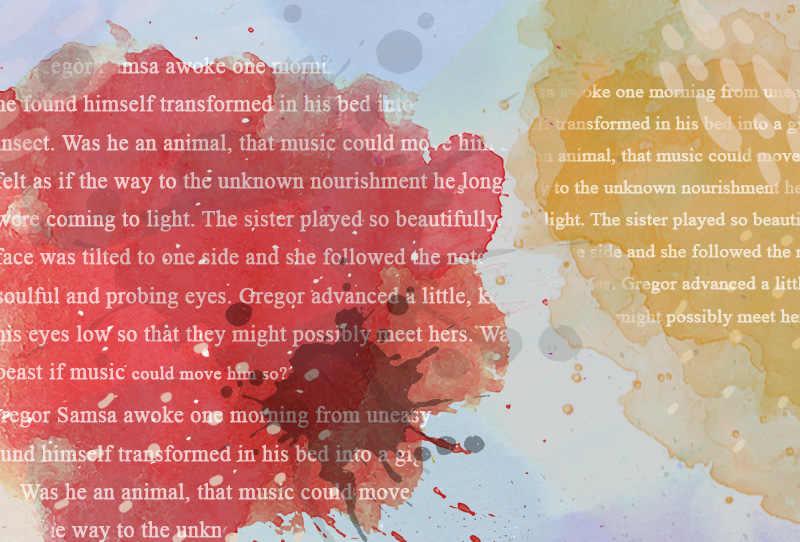Zoetrope Fiction Writing I
GUIDE TO FICTION COURSES
Fiction Writing I is a 10-week workshop, which includes lectures, exercises, and the critiquing of student projects. It’s for beginners or anyone who wants to brush up on the fundamentals. Farther down, you can view a syllabus for this course.
The premium Zoetrope fiction classes are done in collaboration with Zoetrope: All-Story, one of the world’s most prominent literary magazines. Founded in 1997 by Francis Ford Coppola, Zoetrope: All-Story has received every major story award, including the National Magazine Award for Fiction, while publishing today’s most promising and significant writers.
The premium Zoetrope Fiction classes are Gotham online classes with a few bonus features:
- A one-year subscription to Zoetrope: All-Story, a value of $50 for the U.S., $65 for Canada/Mexico, and $99 for everywhere else.
- A chance to submit a short story to Zoetrope: All-Story that skips the slush pile and gets careful consideration for publication in the magazine. (Yes, students have been published in Zoetrope. There is, however, no guarantee that any student story will be accepted, and the magazine is extremely selective.)
- A weeklong question-and-answer session at the end of the course with Zoetrope: All-Story’s editor, Michael Ray
You might also consider Gotham’s regular Fiction Writing classes.
Fiction is a wonderful conjuring act. With only words and the reader’s imagination, a work of fiction can sail across the world in pursuit of a whale, or time-travel to another dimension, or zero in on a few minutes in line at the local bank, enveloping the reader in a made-up story that feels real.
To pull off this feat requires a balance of craftsmanship, daring, and insight into human nature. Here you’ll learn the time-tested elements of fiction craft and how to market your work.
Whether you seek to write short stories or novels; mainstream, literary, or genre; comic or tragic, we’ll show you how to spin your thoughts into believable and spellbinding tales.


Without a doubt, I am a better writer now.
Kali Laird
e-commerce manager
Notes
Fiction I encompasses short stories and novels. After Level I, students have a choice of Short Fiction Writing II (focusing on short stories), or Novel II Critique or Novel II First Draft (focusing on novels).
If you’re working on “genre” fiction, you may take either a Fiction/Novel course or one of our genre courses: Science Fiction & Fantasy, Romance, Mystery.
If you’re working on a YA novel, you may take a Fiction/Novel or “genre” course, or you may take a Children’s Book course, where the full spectrum of children’s books will be covered.
Upcoming Classes
If you show Covid symptoms OR If you have been exposed to someone with Covid – Don’t come to class for at least 5 days after showing symptoms or exposure, and then take a test to confirm that you are negative. Let your teacher know and we’ll work to give you access to your missed classes via Zoom.
If you have any questions about this, you may call (212-974-8377) or email us ([email protected]).
-
Class Full. Join wait list.
-
Price
Registration fee $25, paid once per term
11-Week
-
Online
Anytime, week-long sessions
Tuition: $510
Syllabus
This course gives you a firm grounding in the basics of fiction craft and gets you writing a short story (or two) or a novel. Course components:
Lectures
Writing exercises
Workshopping of student projects (each student presenting work two times)
Week 1
Introduction to Fiction: The different types and forms of fiction. Where to find inspiration and ideas. The importance of craft.
Week 2
Character: Where to find characters. Making characters dimensional through desire and contrasts. Creating character profiles. Showing vs. Telling. Methods for showing characters.
Week 3
Plot: Finding a major dramatic question. Shaping a beginning, middle, and end. The difference between short story and novel plots. Pros and cons of outlining.
Week 4
Point of View: POV defined. Exploration of the many types of POV.
Week 5
Description: Using the senses. Specificity. Techniques for creativity. Finding the right words. Merging description with point of view.
Week 6
Dialogue: The importance of scene. Dialogue's illusion of reality. Quotation marks and tags. Stage directions. Summarized dialogue. Characterization through dialogue. Subtext. Dialect.
Week 7
Setting/Pacing: Time. Place. Weather. Description of setting. Merging character and setting. How to manipulate time through pacing. Flashbacks.
Week 8
Voice: Voice defined. Exploration of the various types of voice. Tips for finding your voice. Understanding style—syntax, diction, and paragraph length.
Week 9
Theme/Revision: Theme defined. Types of theme. Weaving theme into a story. Exploration of the various stages of revision.
Week 10
The Business: Proper format for manuscripts. How to target publishing houses, literary magazines, and agents. Query letters.
Week 11
Zoetrope Editor: A visit with Michael Ray, editor of Zoetrope: All-Story
Note: Content may vary among individual classes.
Teachers

Michael Backus
Michael Backus is the author of the novels The Vanishing Point (Cactus Moon Books) and the chapbook Coney on the Moon (Redbird Chapbooks). His short stories and nonfiction have appeared in One Story, Okey Panky, Channel, Parhelion Literary Review, Jellyfish Review, Cleaver, Digging Through the Fat, Oyster River Pages, Prime Number, and Exquisite Corpse. He has taught at Columbia College and Marymount Manhattan College. He holds a BA from Purdue University and an MFA from Columbia College.
Read more
is the author of the novels The Vanishing Point (Cactus Moon Books) and the chapbook Coney on the Moon (Redbird Chapbooks). His short stories and nonfiction have appeared in One Story, Okey Panky, Channel, Parhelion Literary Review, Jellyfish Review, Cleaver, Digging Through the Fat, Oyster River Pages, Prime Number, and Exquisite Corpse. He has taught at Columbia College and Marymount Manhattan College. He holds a BA from Purdue University and an MFA from Columbia College.